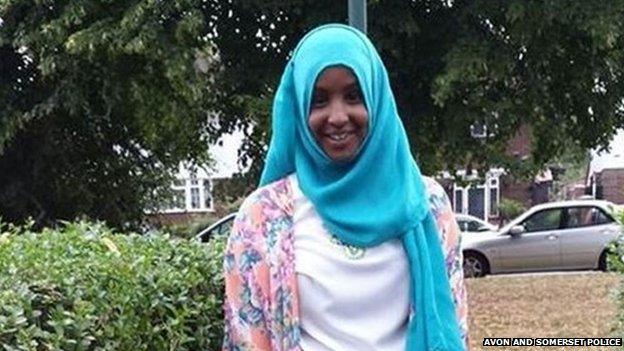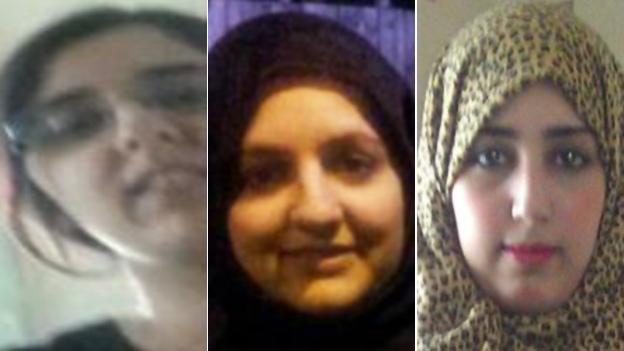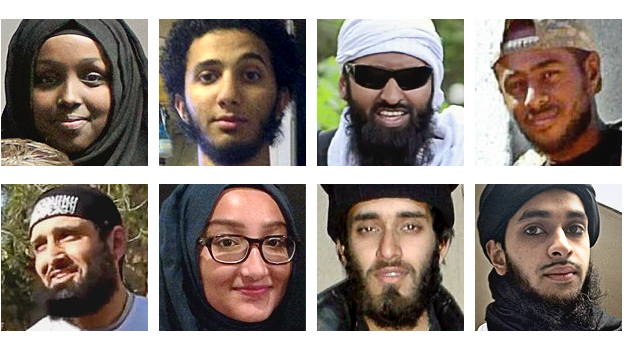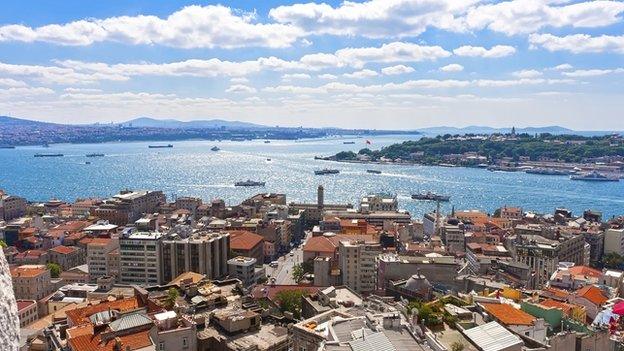43 British women and girls in Syria, say police
- Published

Yusra Hussien, from Bristol, was among the first to leave the UK
UK counter-terrorism chiefs say 43 UK women and girls are believed to have travelled to Syria in the past year.
The Metropolitan Police figures are the first official count of British women thought to be in the warzone.
Security officials believe up to 700 people have gone to Syria to become involved in jihadist groups and about half have returned.
Deputy Assistant Commissioner Helen Ball said women who travelled might never be able to return home.
Women who travel to Syria for jihadist reasons cannot get involved directly in fighting. They are regularly married off to fighters.
'Extremely dangerous'
There have been a string of high-profile appeals by police in relation to the suspected travel of women to Syria - the most recent relating to the disappearance of an extended family of 12 from Luton in Bedfordshire. Last month, three sisters from Bradford left the city, taking their nine children with them.

Sisters Sugra, Zohra and Khadija Dawood: Took their children to Syria in June
Police are running a radio campaign for a second time in three months on stations aimed at British ethnic minorities, appealing to mothers to help.
Ms Ball, the senior national co-ordinator for counter terrorism policing, said: "Syria is an extremely dangerous place - the reality of life there is far from the image that terrorist groups actively promote to young women here in the UK.
"Families and communities are terrified that their daughters may be lured into travelling there.
"In some cases the appeal for women and girls may be a belief that their life will hold more meaning if they travel. It may be a misplaced sense of glamour of marrying a fighter, or perceived difficulty as to how to reconcile their religion with modern life so that they feel compelled to follow, as they may see it, their religious obligation by joining other women in Syria.
"Stories of families who have suffered the devastating consequences of loved ones travelled to Syria are sadly becoming more common. These are young women who are highly unlikely ever to have the option of returning home."
Ms Ball said police needed mothers with any concerns to have "open dialogue" with their daughters and also to speak in confidence to the police, external at the "earliest opportunity" so that officials agencies could intervene.
The UK has a system of referring people at risk of being drawn into terrorism or extremism to specialist assessment and counselling which aims to get them to think again.

Tracking Britain's jihadists: BBC database

It includes the stories of:
Those reported to have died
People who have returned and been convicted by the courts in England
Many others alive and active in Syria or Iraq

'Brainwashed'
The BBC has been tracking the activity of at least a dozen British women and girls who have gone to Syria as part of a long-term survey of British supporters of jihadism in Syria and Iraq.
Some of these women have maintained a public profile on social media and urged others to follow them.
Among the first women known to have left the UK were Aqsa Mahmood from Glasgow, Grace Dare of London and Sally Jones of Chatham in Kent - all of whom travelled during 2013 before the group that calls itself Islamic State declared a caliphate.
The youngest girls known to have travelled independently are 15-year-old school girls who hid their plans from their parents.
Friends of one of those, Yusra Hussien from Bristol, later told BBC News that she had been married soon after arriving in the warzone. Her family said she had been "brainwashed or radicalised" online.
- Published6 October 2014

- Published26 March 2015